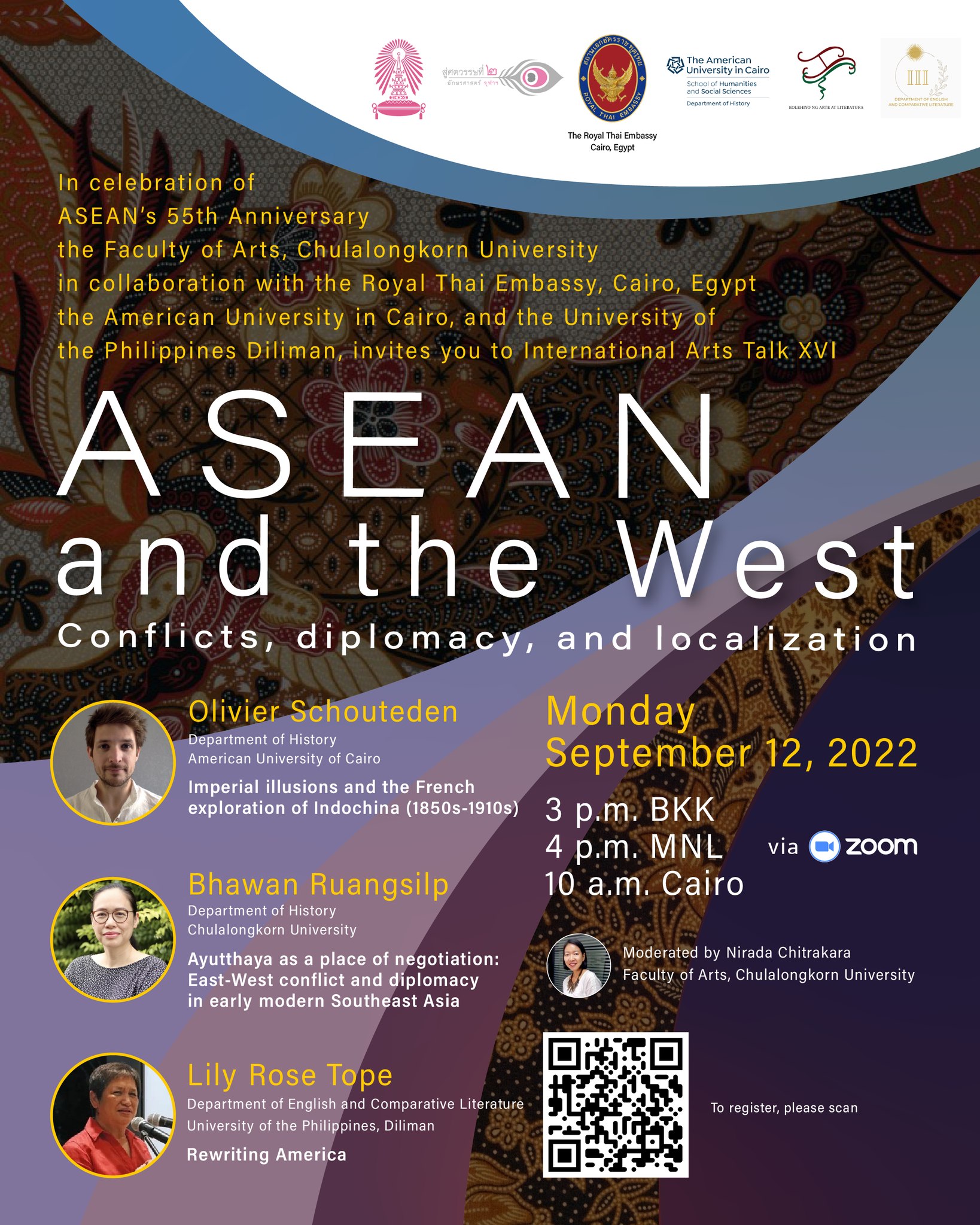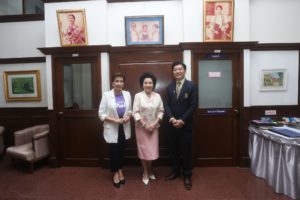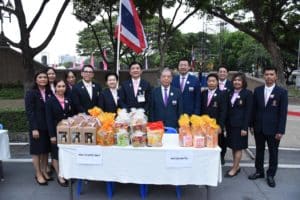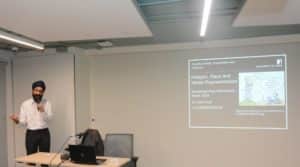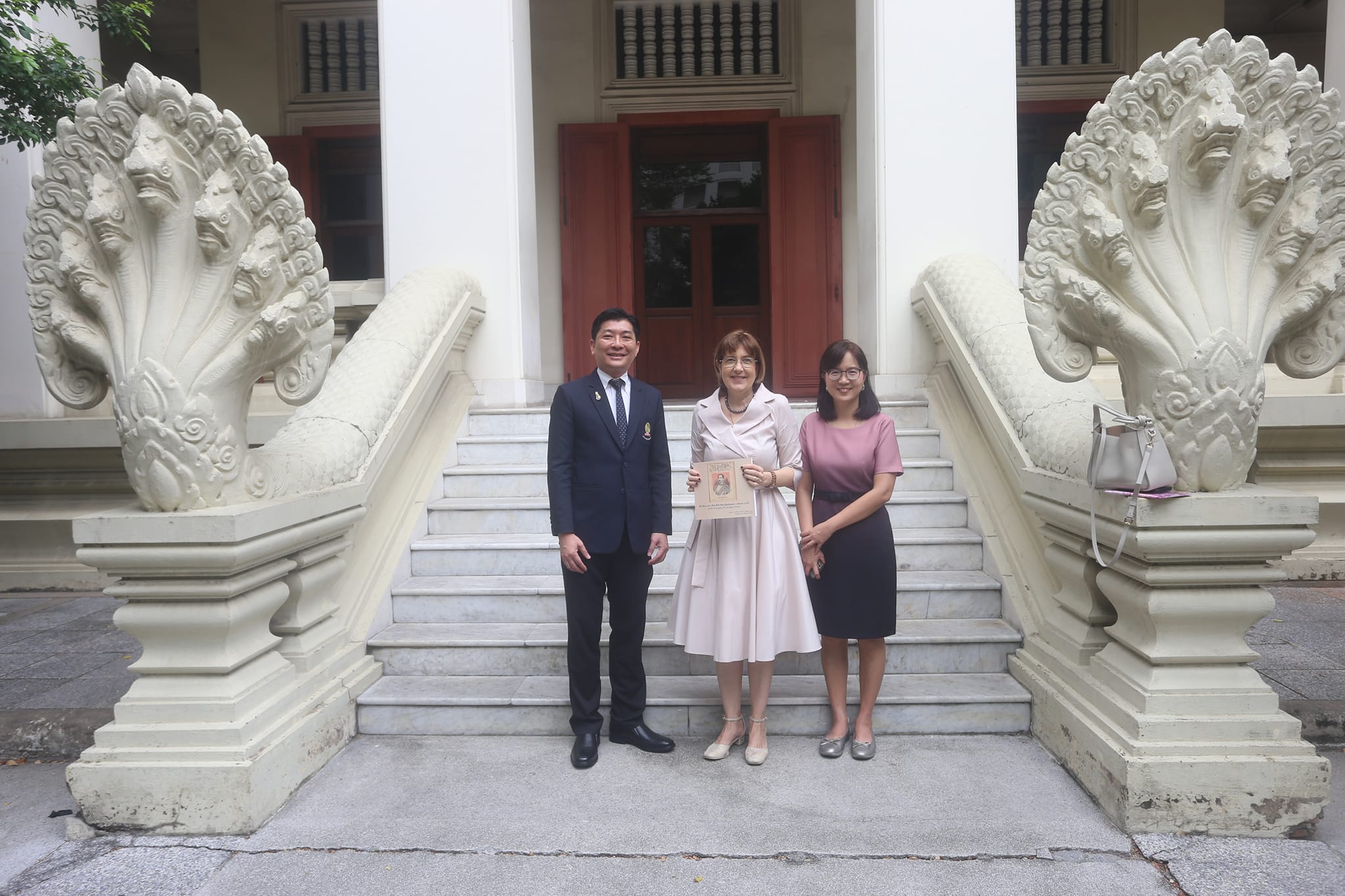On Tuesday, September 12, 2022, to celebrate ASEAN’s 55th Anniversary, the Faculty of Arts, Chulalongkorn University, in collaboration with the Royal Thai Embassy, Cairo, Egypt, the American University in Cairo, and the University of the Philippines, Diliman, organized International Arts Talk XVI, ASEAN and the West: Conflicts, diplomacy, and localization. The session comprises three presentations related to different roles of the West in the history of ASEAN countries.
The first presentation is on Imperial illusions and the French exploration of Indochina (1850s-1910s) presented by Olivier Schouteden, Department of History, American University in Cairo. In his study, Schouteden examines the contribution of French exploration to the making of colonial Indochina. Conflicts were found to arise among different groups of people. The study portrays the difficulty and illusive creation of a modern French empire in Southeast Asia.
After the conflicts in the first presentation comes diplomacy in the second presentation, Ayutthaya as a place of negotiation: East-West conflict and diplomacy in early modern Southeast Asia. Presented by the Faculty of Arts, Chula’s Bhawan Ruangsilp from the Department of History, Ayudhaya is viewed as the area of diplomacy. Ruangsilp states that “from the beginning of the 16th century, the European overseas expansion into Southeast Asia brought about new conflicts between the Europeans and Asians as well as between the European nations. She stated that Ayutthaya “became an important site of this cross-cultural interaction. The presentation highlights Ayutthaya as a place of negotiation between the East and the West”.
With regards to the southern part of ASEAN, Lili Rose Tope from the Department of English and Comparative Literature, University of the Philippines, Diliman presented the influence of the United States in the Philippines in Rewriting America. The Philippines is seen as the outcome of the colonization of two Western countries: Spain and America. “Spain colonized the Philippines for 300 years bringing Spanish culture and Roman Catholicism to the islands. America colonized the Philippines for 50 years but its influence did not end with Philippine independence because American culture continues to be a dominant factor in Filipino cultural production.” Tope stated that “The Filipinos’ proficiency in the language has given them an access to knowledge constructed in English which gained them footholds in higher education institutions in the West and professional advantages in global companies”. Tope’s study focuses on “Philippine writing in English to show how literature and language became sites of both acceptance of and resistance against Western culture.”
With conflicts, diplomacy, and localization, the session is hoped to draw connections between ASEAN countries through the past experience with the West which could be considered a threat at the beginning, but later on, became beneficial and, eventually, part of the identity of the people in some parts of the region. This session was well attended by scholars from various countries.
To enjoy the session, please log on to here.
Passcode: 4upQ!^Kk

